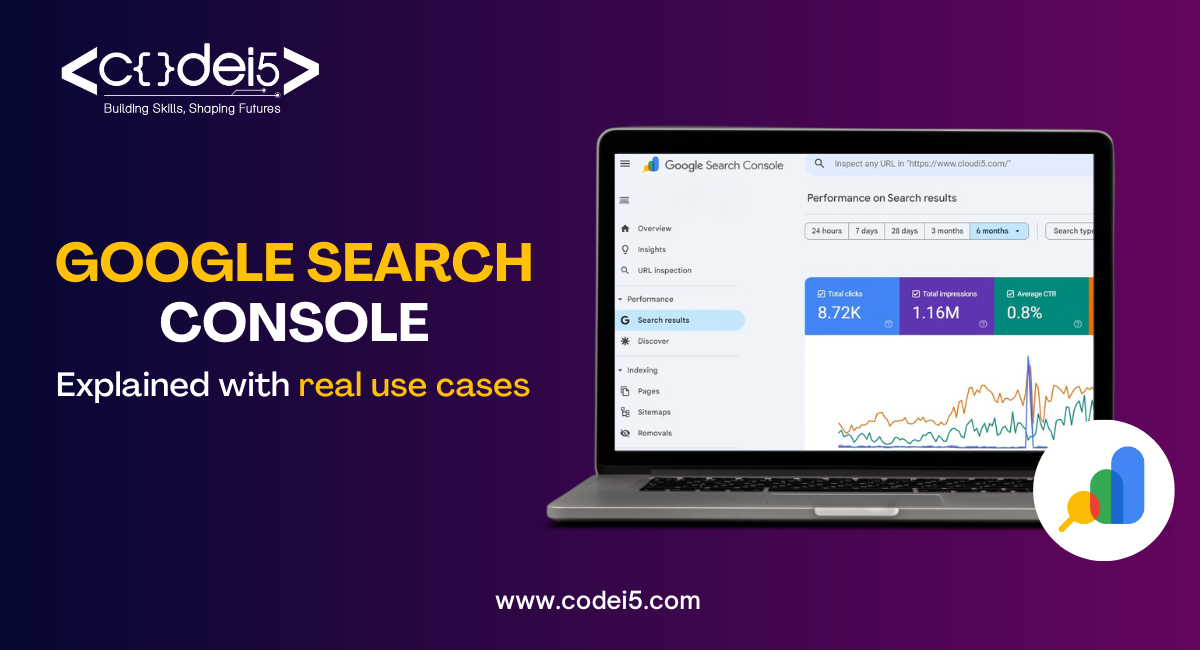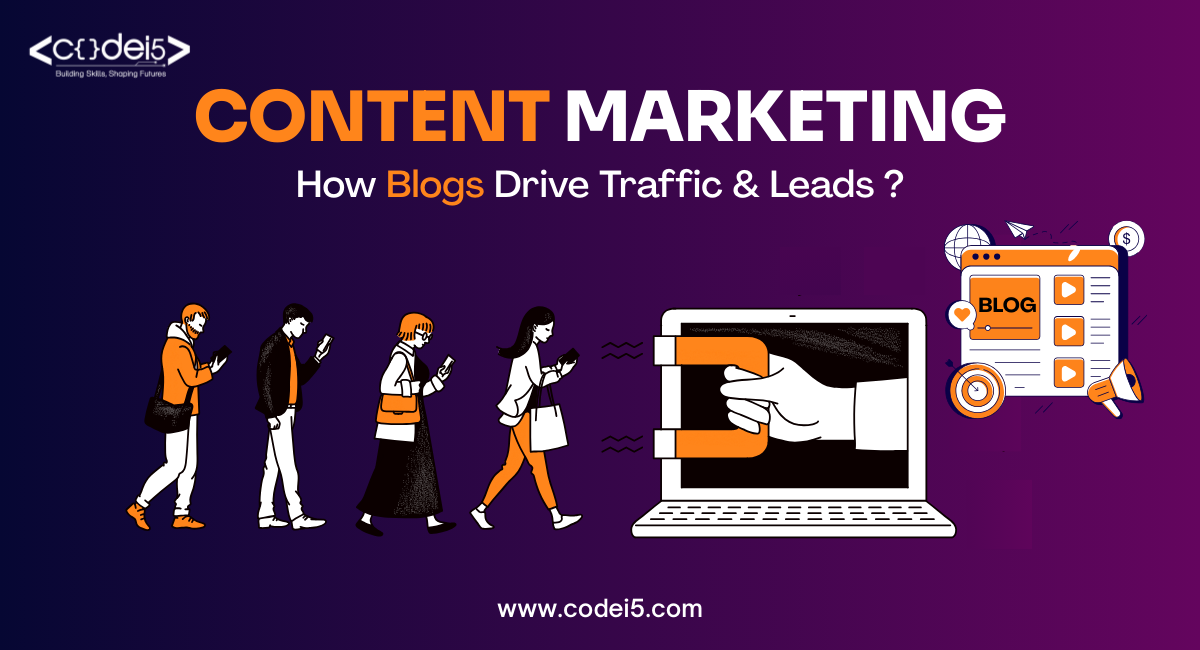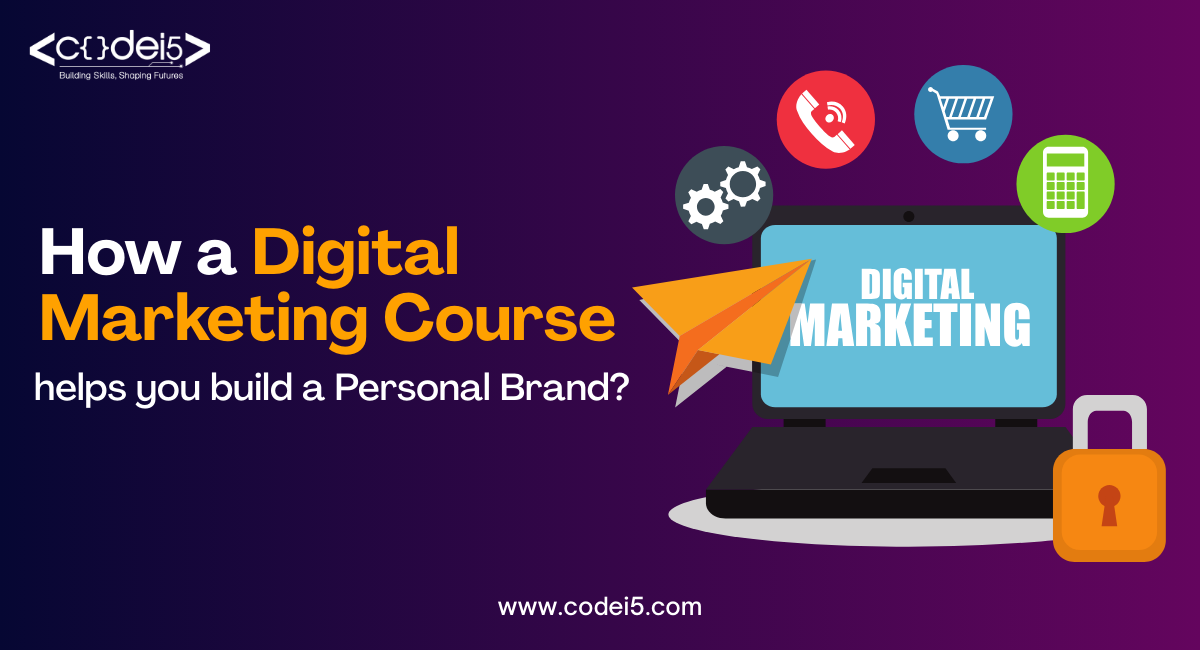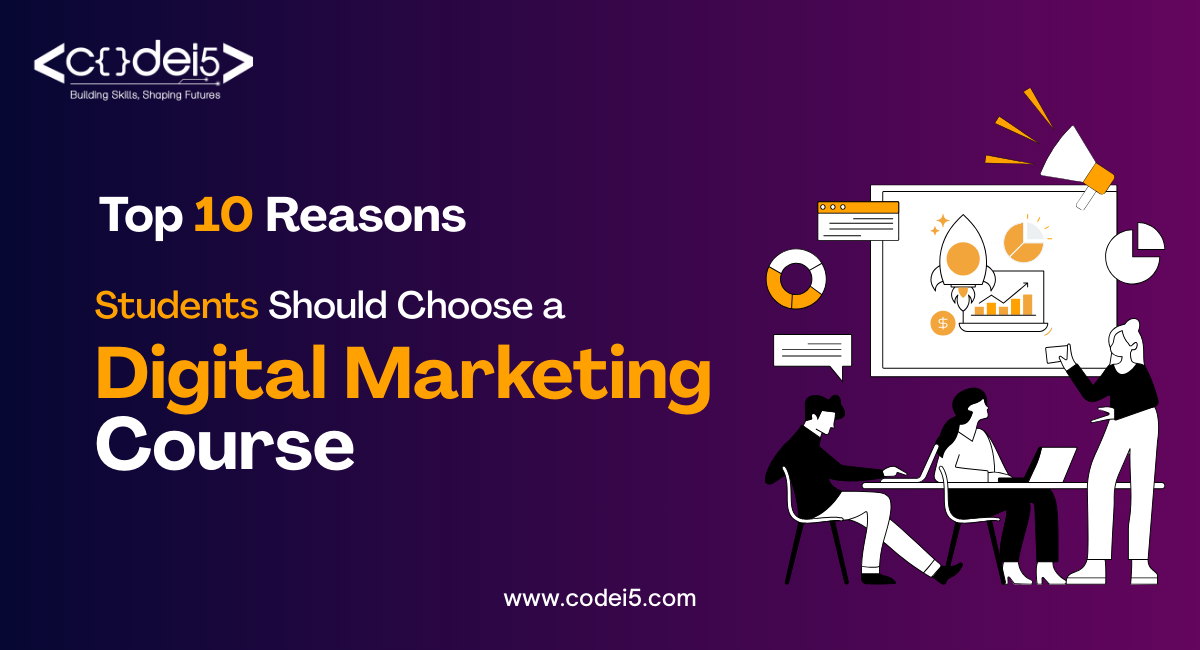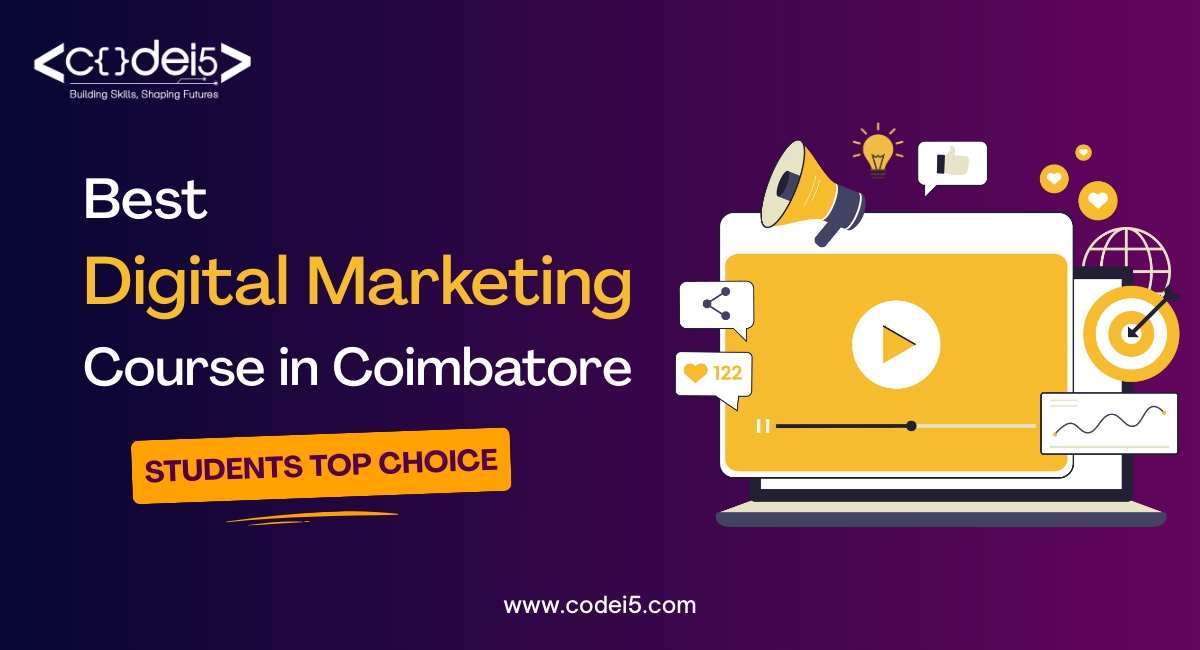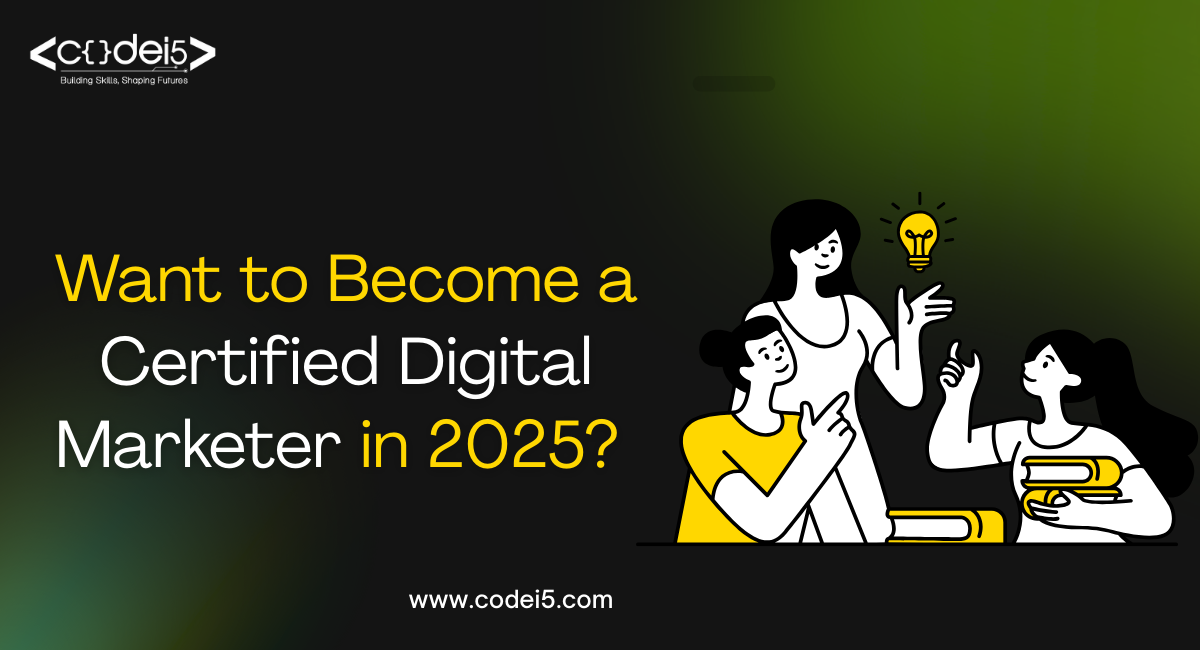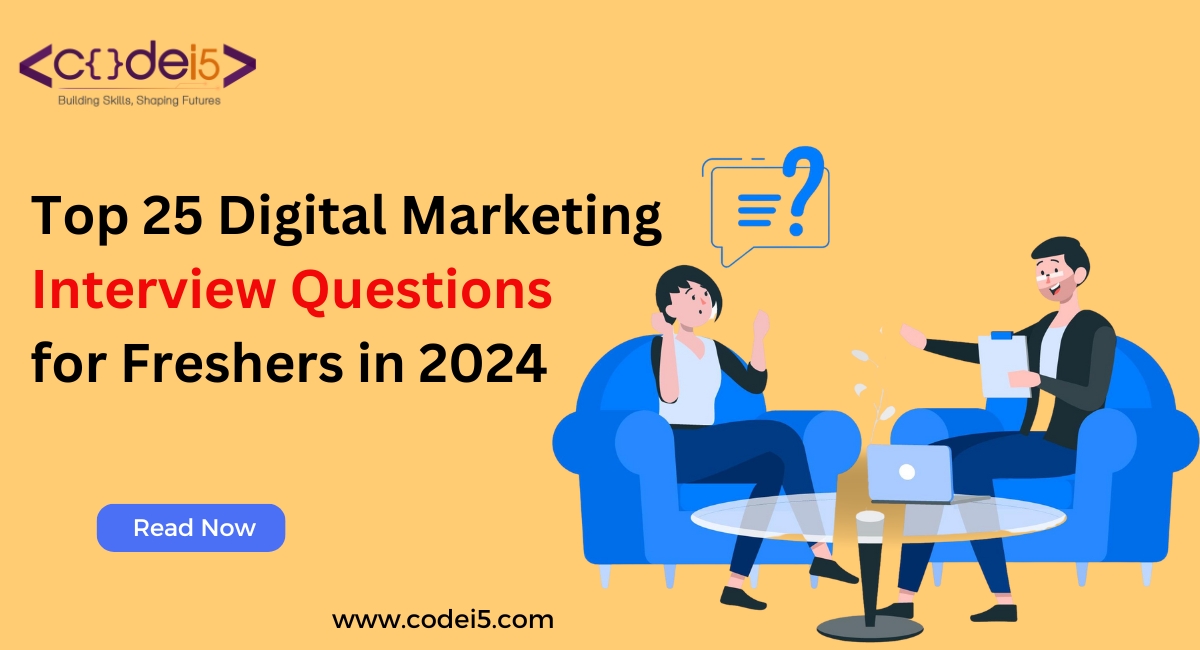
So, you’re excited about digital marketing and ready to get your first job in this exciting field? That’s great news! Interviews can feel scary, but with good preparation, you can show your best self and impress your interviewers. This blog will give you the top 25 digital marketing interview questions for beginners. By learning these key ideas and practicing your answers, you’ll be ready to shine in your interview and get the job you want.
Let’s explore the top interview questions!
General Digital Marketing Knowledge
1. What is digital marketing?
Digital marketing is the promotion of products or services using online channels like websites, social media, search engines, email, and mobile apps.
2. What are the benefits of digital marketing compared to traditional marketing?
Digital marketing offers wider reach, targeted audiences, cost-effectiveness, real-time measurement, and better engagement with customers.
3. What are the different areas of digital marketing?
Some key areas include Search Engine Optimization (SEO), Social Media Marketing (SMM), Pay-Per-Click (PPC) advertising, Content Marketing, Email Marketing, and Affiliate Marketing.
Understanding Core Concepts
1. What is SEO and why is it important?
SEO is optimizing a website to rank higher in search engine results pages (SERPs) for relevant keywords. This drives organic traffic to your website.
2. Explain the difference between SEO and SEM.
SEO focuses on organic search results, while SEM encompasses all paid search marketing activities, including PPC ads.
3. What are keywords, and why are they crucial in SEO?
Keywords are the words and phrases people use to search online. They are essential for optimizing your website content to be found in relevant searches.
4. What are some effective ways to increase website traffic?
Strategies include SEO optimization, content marketing, social media promotion, email marketing, and online advertising.
5. What is the sales funnel, and how does it relate to digital marketing?
The sales funnel visualizes the customer journey, from awareness to conversion. Digital marketing targets each stage to nurture leads and drive sales.
Content Marketing and Social Media
1. What is content marketing, and how can it be used in a digital marketing strategy?
Content marketing involves creating and sharing valuable content (blogs, articles, videos, infographics) to attract and engage a target audience. This establishes brand authority and drives conversions.
2. What are the different types of social media platforms, and how can they be used for marketing?
Popular platforms include Facebook, Instagram, Twitter, LinkedIn, and YouTube. Each has unique demographics and content styles. Businesses can use them to connect with audiences, build brand awareness, and promote products or services.
Analytics and Measurement
1. Why is it important to track and measure digital marketing campaigns?
Tracking data allows marketers to see what’s working and what’s not. This helps optimize campaigns for better results and measure return on investment (ROI).
2. What are some key metrics used to measure the success of a digital marketing campaign?
Depending on the campaign goals, metrics might include website traffic, engagement (likes, shares, and comments), conversions (leads, sales), click-through rates (CTRs), and cost per acquisition (CPA).
Practical Knowledge and Tools
1. What is Google Analytics, and how is it used in digital marketing?
Google Analytics is a tool that tracks and reports website traffic, helping marketers understand user behavior and measure campaign performance.
2. What are some popular SEO tools, and how do they help in optimizing a website?
Popular tools include Ahrefs, SEMrush, Moz, and Google Keyword Planner. They help with keyword research, backlink analysis, and tracking website performance.
3. Can you explain what PPC advertising is?
PPC (Pay-Per-Click) advertising is a model where advertisers pay a fee each time their ad is clicked. It’s a way to buy visits to your site, rather thearning them organically.
4. How do you create an effective email marketing campaign?
By segmenting your audience, creating compelling subject lines and content, personalizing emails, and using clear calls-to-action (CTAs).
5. What is the importance of mobile optimization in digital marketing?
With the increasing use of smartphones, mobile optimization ensures a seamless user experience across all devices, which is crucial for user engagement and conversion rates.
Strategy and Planning
1. What is a digital marketing strategy, and how do you create one?
A digital marketing strategy outlines how a business will achieve its marketing goals using online channels. It involves researching the target audience, setting objectives, choosing tactics, and measuring success.
2. How do you determine your target audience?
By analyzing demographic data, customer behavior, and market research you can identify who is most likely to buy your product or service.
3. What is a content calendar, and why is it important?
A content calendar is a schedule that outlines when and where you will publish upcoming content. It helps in planning and maintaining consistent content output.
Industry Trends and Future Outlook
1. What are the latest trends in digital marketing for 2024?
Trends include the rise of AI in marketing, personalized marketing experiences, voice search optimization, video content dominance, and the use of AR/VR.
2. What role does AI play in digital marketing?
AI helps in automating tasks, personalizing user experiences, analyzing data for insights, and optimizing marketing efforts.
3. How important is user-generated content in a digital marketing strategy?
User-generated content (UGC) builds trust and authenticity. It involves customers creating content related to your brand, which can be shared on social media and other platforms.
4. What is the significance of influencer marketing in 2024?
Influencer marketing leverages individuals with large followings to promote products. It helps in reaching a wider audience and building credibility.
5. How do you stay updated with the latest digital marketing trends and best practices?
By following industry blogs, attending webinars, participating in online courses, and engaging with professional communities on platforms like LinkedIn and Twitter.
Remember, these are general questions often asked in interviews, but to give yourself the best chance of success, be prepared to explore all aspects of digital marketing. This means understanding the latest trends and technologies, along with demonstrating your ability to analyze data and measure campaign performance.
Conclusion
Digital marketing is a dynamic and exciting field, and being well-prepared for your interview can make all the difference. By familiarizing yourself with these top 25 digital marketing interview questions for freshers and understanding the core concepts and practical applications of digital marketing, you’ll be well-equipped to impress your interviewers and land your dream job in the industry. Remember to stay curious, keep learning, and stay updated with the latest trends and best practices in digital marketing to stay ahead in this ever-evolving field. Good luck!
If you want to enroll in our digital marketing courses or have queries, don’t hesitate to get in touch with us.


